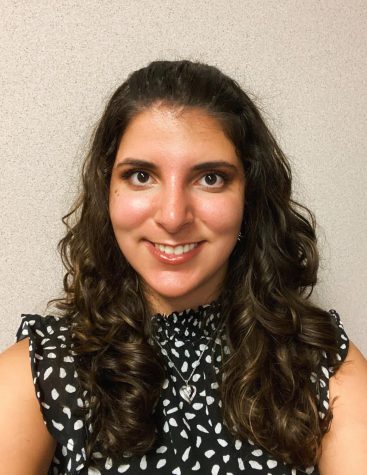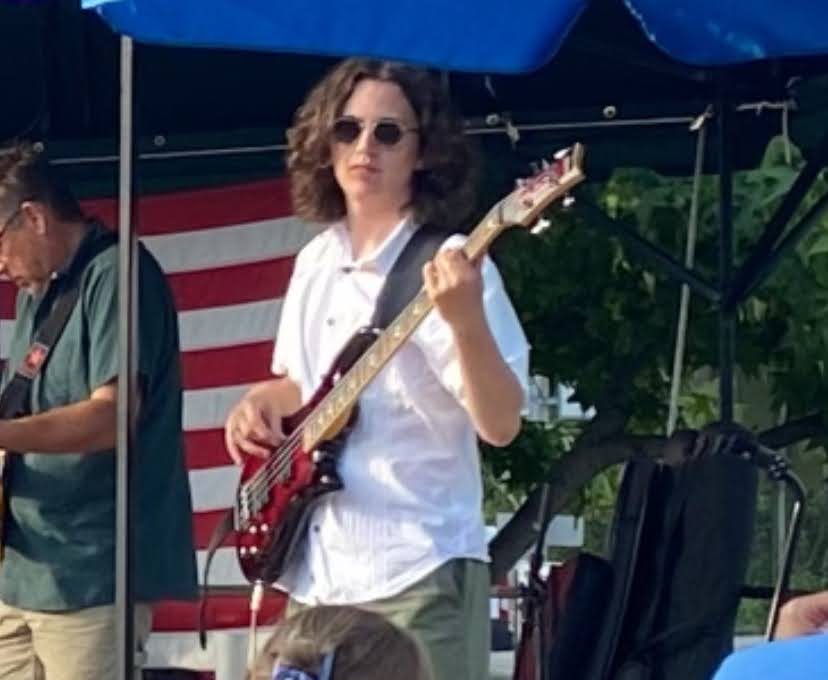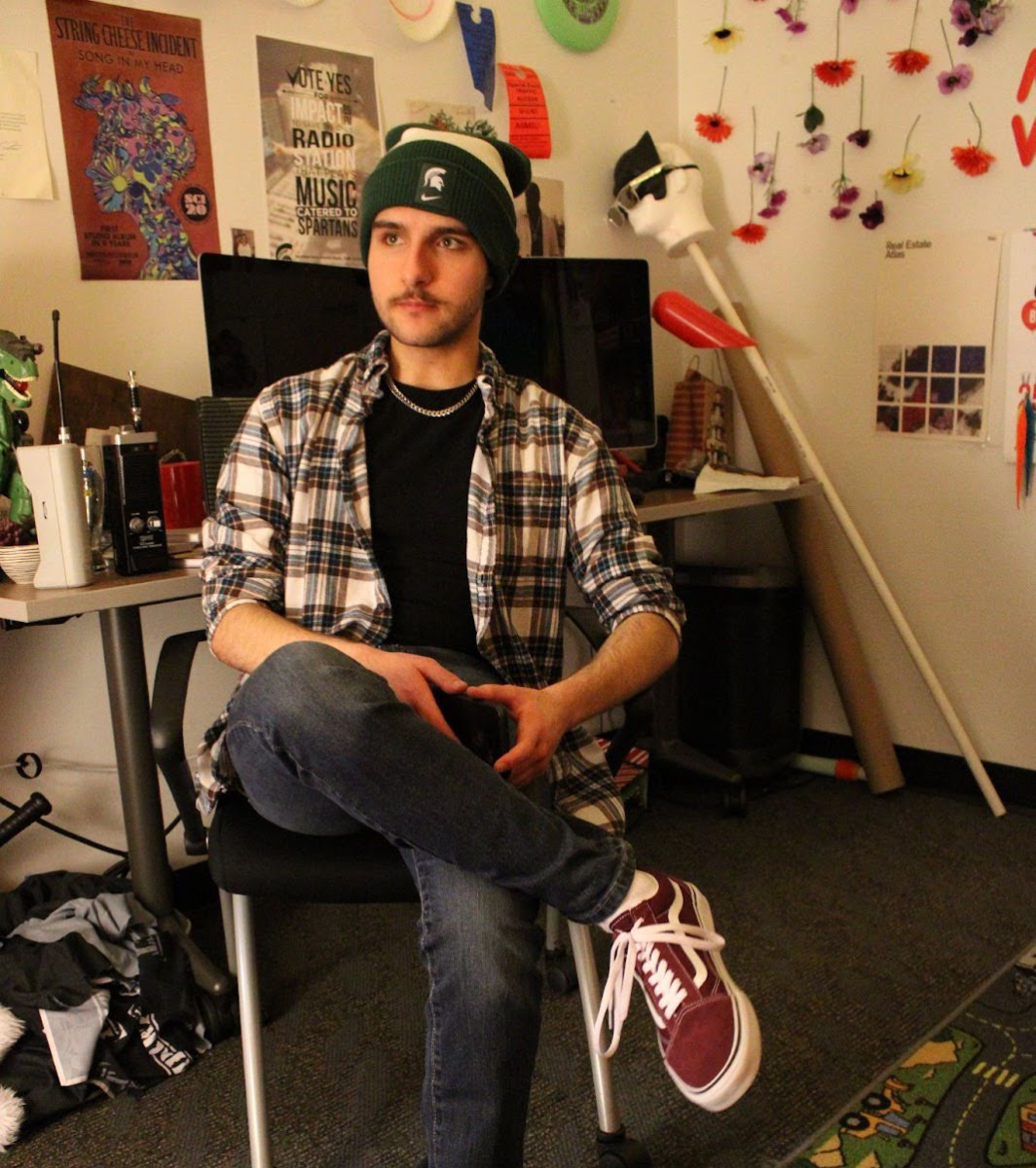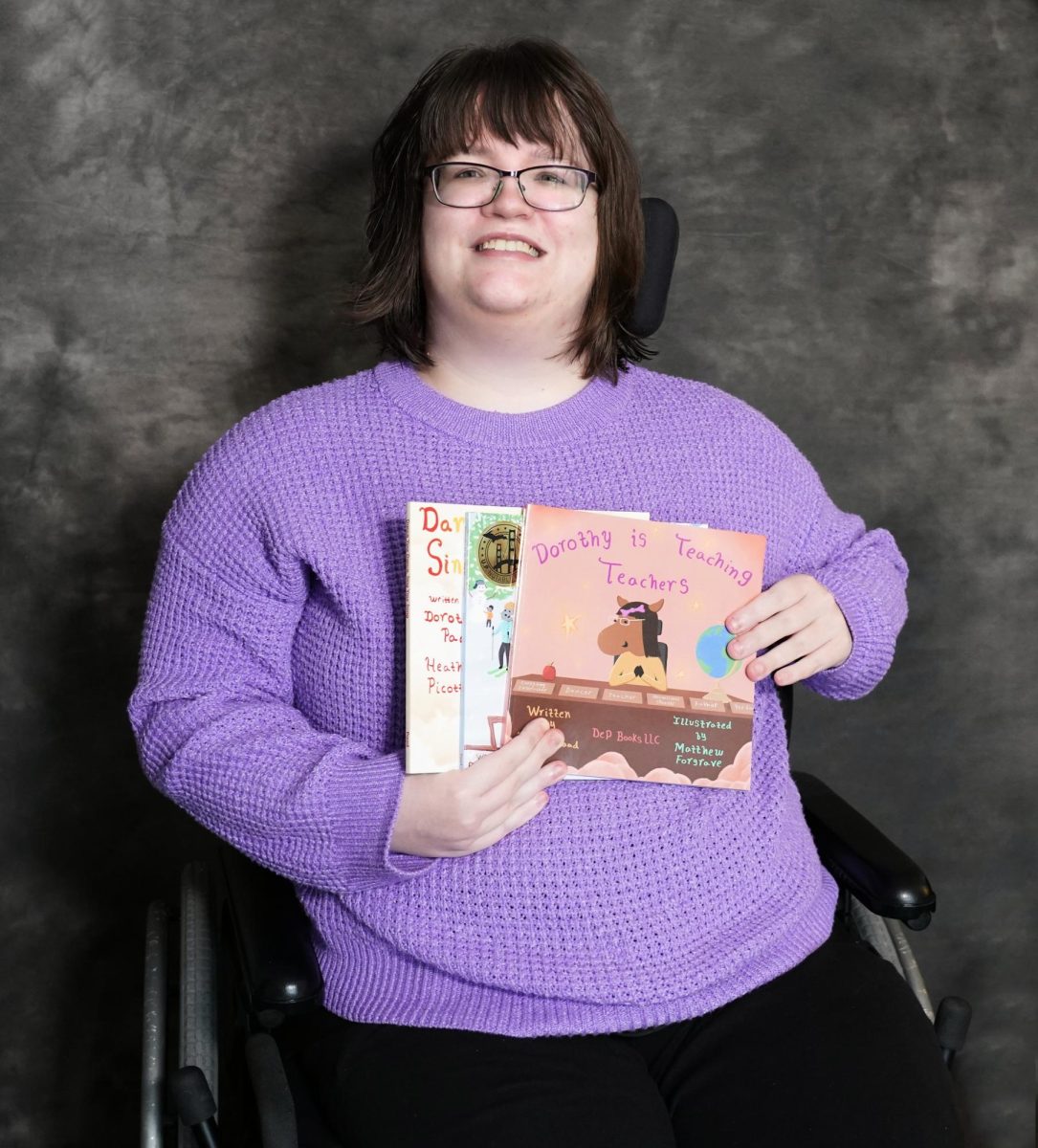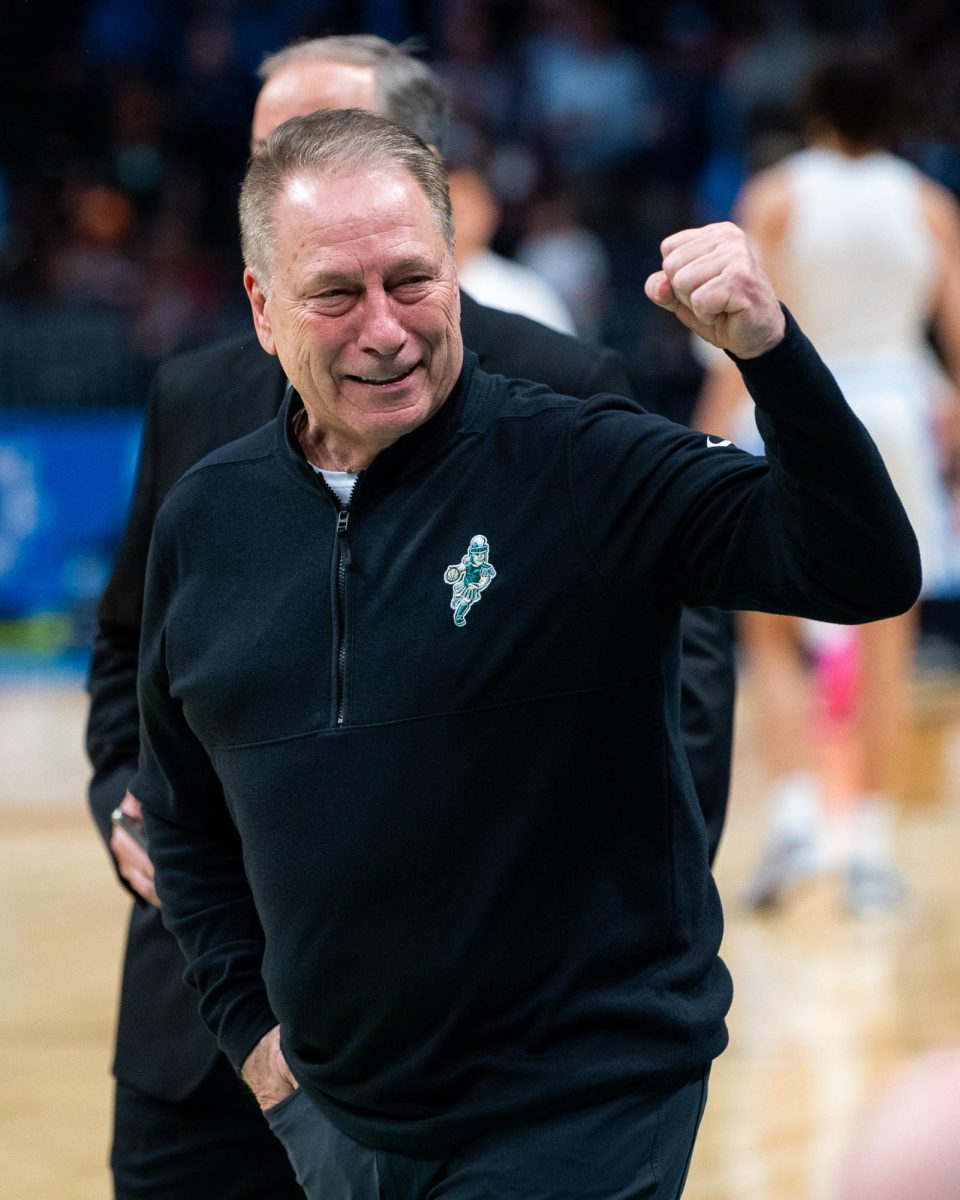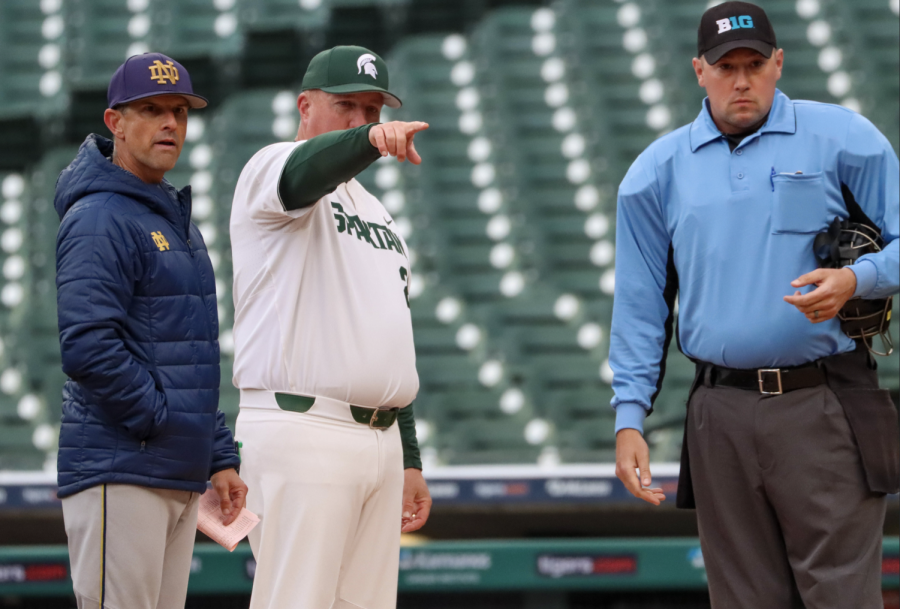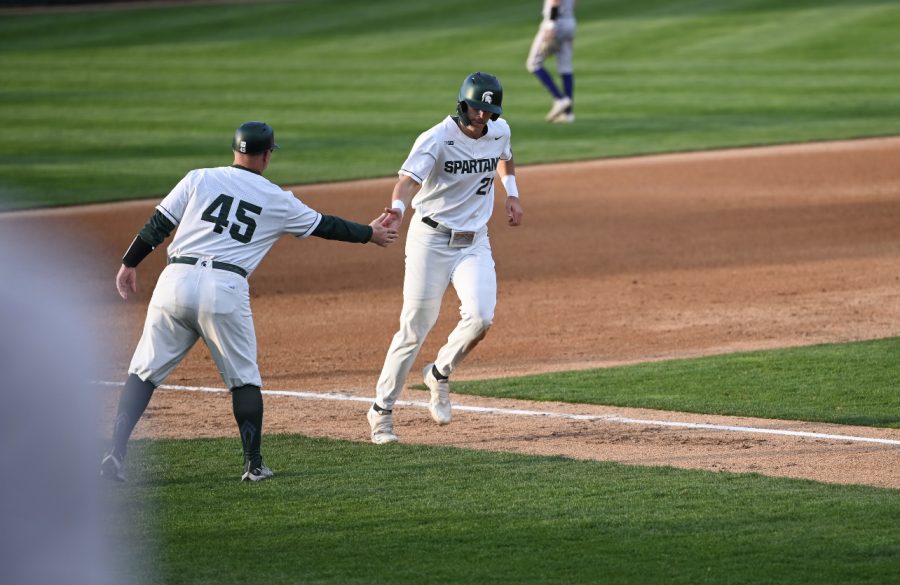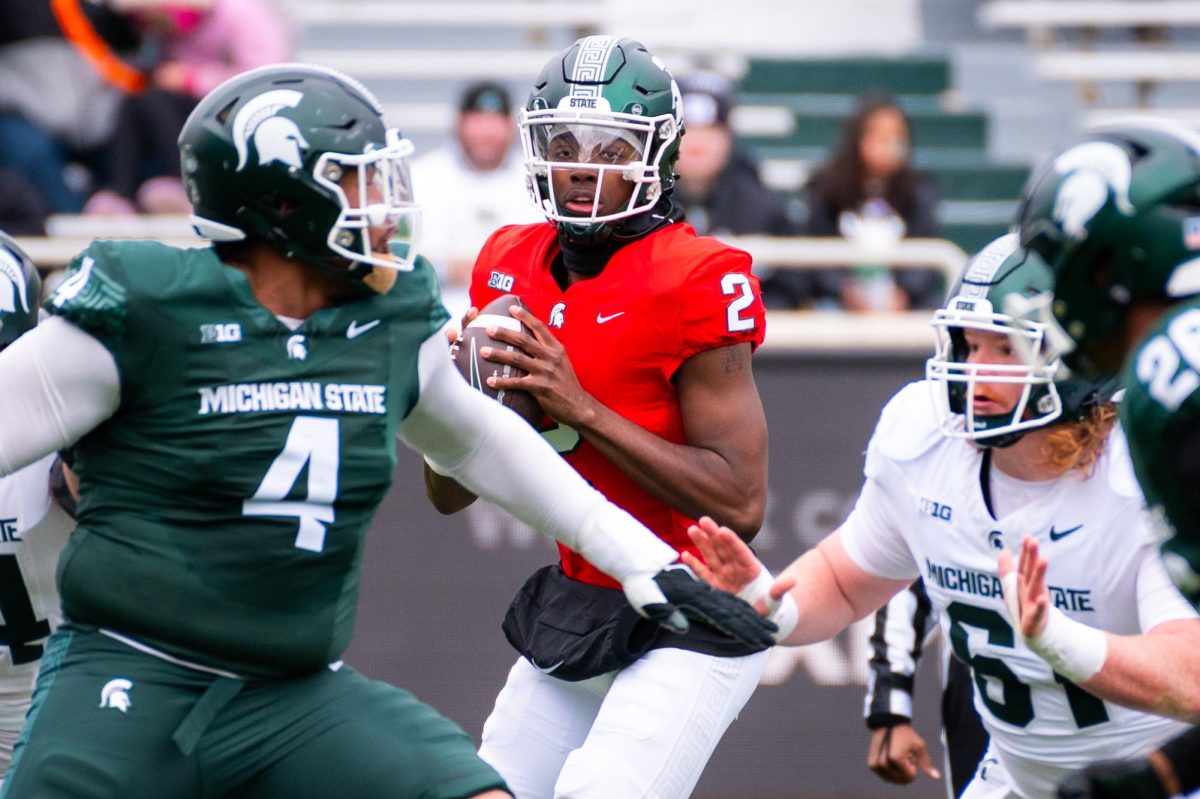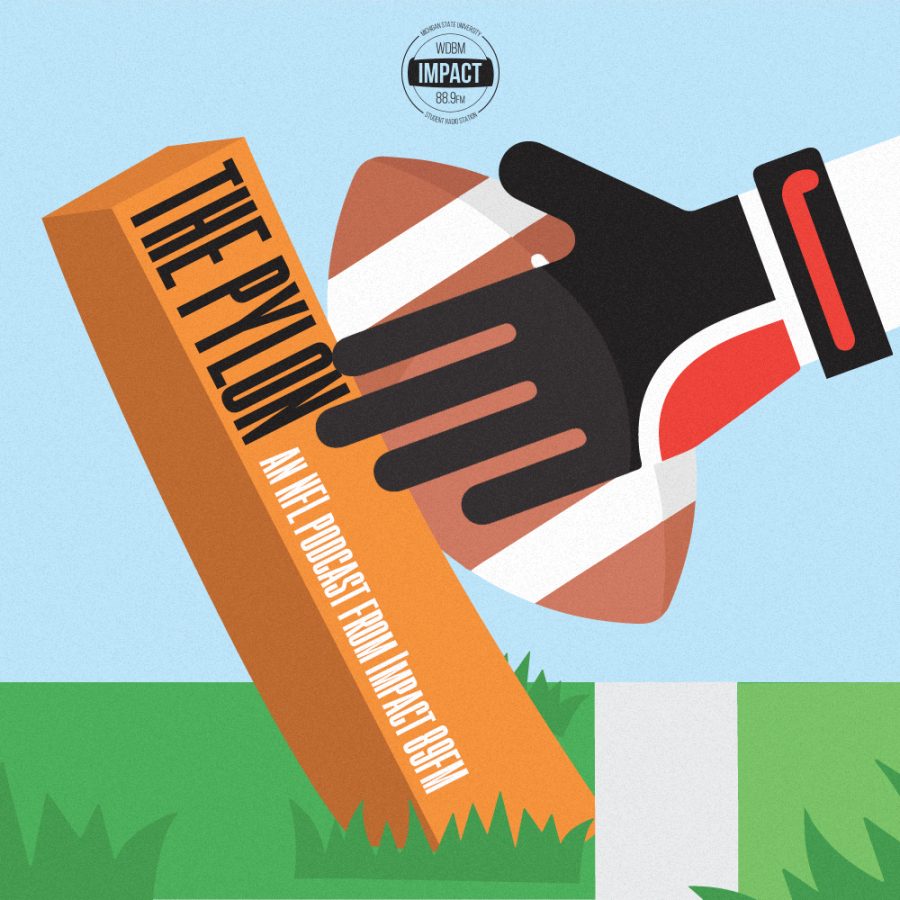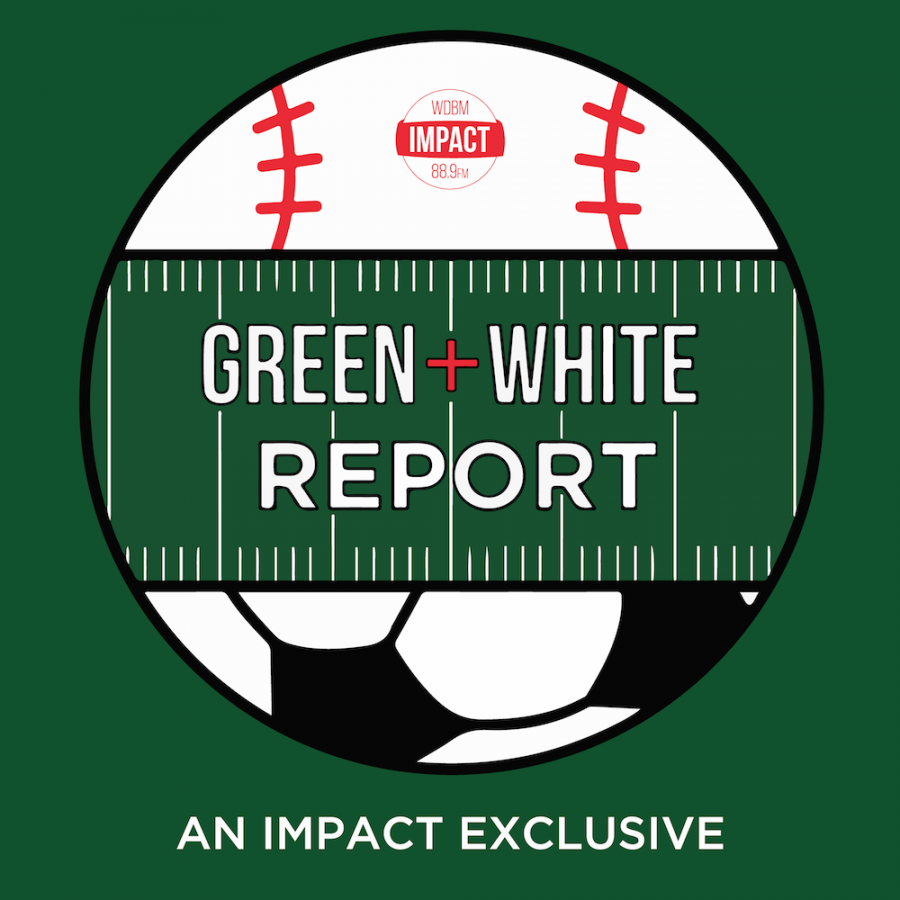Exposure – 4/19/2020 – TRANSCRIPT for Spartan Fireside
April 21, 2020
Interview Transcript
Connie Rahbany: Hello and welcome to Exposure. I’m your host Connie Rahbany, and I’m excited to be interviewing with Mark Largent and Jeff Grabill from Spartan Fireside. Thank you for joining me.
Mark Largent: Thanks for having us.
Connie Rahbany: So, could I have you introduce yourselves and tell me a little bit about you?
Jeff Grabill: Yeah, thank you.
Mark Largent: I’m Mark Largent. I am the associate provost and Dean of undergraduate education at Michigan state.
Jeff Grabill: And I’m Jeff Grable. I am the associate provost for teaching learning and technology at Michigan state.
Connie Rahbany: Perfect. So what can you tell me about Spartan Fireside? What is it?
Jeff Grabill: Mark, why don’t you tell the origin story? Because I’m going to hold you responsible for this very good idea.
Mark Largent: Originally what happened when we went remote for instruction at MSU, uh, earlier in March, we knew we were going to go remote on a Wednesday morning. Uh, the decision had been made overnight by the president and we were informed early Wednesday morning and the deadline was noon. So noon, Wednesday, everybody suddenly had to change over about 90,000 classes from in-person to remote. Uh, and it’s a huge lift for faculty and students both. So over the next two days, as we struggled to do something that none of us had ever imagined we were going to be expected to do, uh, Jeff and I paid very close attention to some of the faculty’s needs and some of the students’ concerns. And by the weekend, it had become clear to us that we were going to have to stand up some resources for people who at that point were still struggling to figure out how to set up their home offices and work remotely and study and learn remotely. So on Monday and Tuesday morning, the next week, Jeff and his crew of folks in the Hub on campus designed two day long sets of webinars that were intended to help people learn how to teach remotely and they asked Jeff and I to do some kind of introduction from nine to 10:00 AM those mornings. So the campus was deserted at that point, and we showed up the broad college of business, uh, in this very nice little sound studio that they had designed, or a webinar’s studio that they had put together. And Jeff and I sat at a desk six feet apart and with planted between us and we, uh, talked for about an hour and what happened was there was this flood of questions and chats coming at us, and we realize that even if only a few dozen people who had learned about this on Monday. Many of them really wanted engagement because even being home for only a few days, they, they missed the going to work. The structure, seeing the people they normally see working in the spaces they normally work. So we did the webinar on Monday morning and then we did it again on Tuesday morning and I had kind of planned to be done at that point. But by the end of the second show on Tuesday morning, I walked out with Jeff and said, we need to do this everyday for awhile from nine to 10. And Jeff, his usually response to my bad ideas is, yeah, yeah. Let me think about that. I’ll talk to some people and get back to you. And, uh, he talked to a couple people and they were like. Yeah, do this. We need this. Nobody else is going to do this. And it was just a space. And, uh, we really didn’t have anyone in that space. And if Jeff and I are good at anything, it’s taking up space. So we decided that we would start doing this for awhile. Uh it’s become a important part of the structure of my day and so, uh, if no one else enjoys it, at least I do and it gives me, uh, some rhythm and pattern to things. Is that pretty accurate, Jeff?
Jeff Grabill: That’s a, that’s a pretty good version of the story.
Yeah. Mark’s right. We had a, as part of the key teaching plans of the university, the team that developed that, um, as Mark said, asked us to spend an hour each of the first two days, and we weren’t really sure what to do at the time, but we tried to set expectations we tried to be open. We tried to be conversational with people and, as Mark said, at the end of those two days, he looked at me and said, we should keep doing this. And I said, Oh no, we shouldn’t. This is no, I think what I probably said out loud was, let me talk to some people and get back to you. I thought that the last thing in the world that people wanted was to spend nine to 10:00 AM every morning with me and Mark. My wife and kids don’t even want to do that with me. So as Mark just noted, we got a great deal of feedback from people that they just appreciated the connection and. One of the dynamics that certainly has appeared among faculty and staff at MSU is that social distancing can be alienating. So while we need to be physically distant, we need to be socially connected. And one of the problems that, or one of the needs that I think the Spartan Fireside has met is a need for social connectivity at a moment in which we are physically isolated. And the feedback that we’ve gotten has been consistently strong that, that social connection, that rhythmic routine, predictable social connection every morning at nine o’clock is uh useful to people. And we get about 80, 90 people every morning. Um not the same 80 or 90 people, certainly. But as Mark also noted, if he and I would walk into a room what happened if we call a meeting at Michigan state in normal conditions and 80 people would show up. We’d be thrilled. So while MSU is a big place and 80 people isn’t necessarily a big number in relationship to the size of the institution, it seems to be a meaningful point of connection. And we’ve certainly enjoyed doing it. I think, I don’t know. I’m enjoying it. I don’t know if Mark is or not. He gets to spend, he gets to see my lovely face. So Connie was, one of the things that you noted is that we have faces for radio and, and uh, well that is one. That is one of the unfortunate characteristics at Spartan Fireside is people have to look at his forehead and my nose every morning.
Connie Rahbany: Well um, I definitely agree with the impact of face to face connection. Was Spartan Fireside something that you were brewing up prior to the pandemic?
Jeff Grabill: No, actually quite literally, Mark looked at me on Tuesday at 10 o’clock in the morning on the second day of those, those all day webinars were focused on faculty making instructional changes. So every hour was on a different topic related to teaching and learning remotely. And when we got done at 10 o’clock on Tuesday, Mark looked at me and he said, we have to keep doing this. And I said, Oh, oh please no. and we did, I mean he was right on this Mark’s instincts on this were absolutely correct. And so we spent the rest of that week with the team figuring out how to do it. I think we started the next Monday or something like that. I don’t even remember. Did we start the next Monday or we continue that week Mark.
Mark Largent: I can’t remember if we did it Wednesday morning. I mean we can go back and look at the logs, but yeah, we did it that week. Cause remember we had, I think Vinnie was the very first person and we had Patoshnick on. So I think we did it right away and kept it going. What I was thinking about it, I mean I had been walking away from that webinar studio. And I actually thought about the show Northern exposure and if you remember that show from like that, I don’t know if it was the eighties or nineties, eighties, I think was, um, about a town in Alaska and the am radio station that was there and the way that, you know, frontier space, the am radio station works is, it’s really a lifeline that people will mail in letters that would then be read on the radio station, because there’s no other way to make connection to people who are remote distance, uh, disconnected and so this is a kind of 21st century version of that frontier am radio. The idea being that we pluck out some person because God knows Jeff and I agreed we would never do one of these shows, that it was just me and Jeff. That would be a terrible, terrible idea and likely lead to us being fired. Uh, we would get somebody else in there and the focus is on them. we’re just vehicles to introduce these folks. So we’ve tried to bring in deans. We tried to begin people with either disciplinary expertise or institutional expertise around things, but increasingly as Jeff and I text back and forth about who else Jeff needs to book because he does all the booking, I’ll say, this person’s got a good story. Or I’ll say, you know, we should probably get so and so on. And he’ll say, you know, but other than their knowledge of X, Y. And so it’s increasingly about humanizing people on campus you know by their emails and maybe by their faces. And so we have developed a habit of asking them a series of questions to try and pry open their humanness.
Jeff Grabill: So Mark, you’re right. We started on the 18th of March on that Wednesday of that week. This is the 18th of April. So we are officially a whole month into Spartan fireside happy anniversary my friend.
Mark Largent: Oh, that’s nice. I didn’t get anything. Sorry.
Connie Rahbany: So is there any particular webinar since you’ve started that stands out to you?
Jeff Grabill: That’s a great question. I think there are quite a few. So let me give you two recent ones and give Mark A. Little bit of time to go back. And, so two recent ones. So we did one with a faculty member and a colleague in student affairs on student basic needs. And it was from the feedback that I received from the audience that participated, it was probably one of the most impactful sessions that we did. To hear of faculty and staff concerned enough about student basic needs, basic food, housing, mental health, security, that they’ve done a research and design project that’s lasted about a year. They’re working very hard on this, but also to reveal, to have a conference and honest conversation with the campus community that we have students who have real basic needs and it’s a fundamental student success issue that if students aren’t secure, if they’re not healthy, if they aren’t eating and they’re eating well, if they don’t have secure housing, they can’t learn. And that’s a radical change for US higher education to consider those sorts of issues that’s fundamental to our business. It’s sad. It’s heartbreaking that, that, that that’s necessary. But it’s also a really nice pivot for US higher education. And so that session, I knew about their project and I know the individuals well, but even I found it effecting and certainly the audience did. And then this week we had the Dean of nursing, Randy Rasch, he was one of my favorite colleagues on campus because he is passionate. He’s fierce, he’s smart, and he is forward looking. And so he’s doing things with medical education at Michigan state university and basic healthcare for the people of the state of Michigan, which is life changing. And. I know Randy and I know his story, but most people on campus don’t because this place is so big. And I find hanging out with Randy personally impactful. And so I found it compelling, but I also got a tremendous amount of feedback that that morning with Randy helps people reconnect to why we do what we do at Michigan state university.
Mark Largent: The best interviews that we’ve had, I think have been people at either the highest levels of the university’s hierarchy or people who are not in administrative roles. What I found is that people in more middling positions tend to be more guarded, um, because they’re both responsible to and responsible for different people. And they’ve tended to be more guarded. So the deans I think have been very good especially when we can, we can warm them up a little bit. I mean, part of the deal is to get them not realizing that there’s more than the two of us talking to them. I mean, we really seem to try to focus on ways to distract them from the idea that there are other people that could be listening to this or that it’s being recorded and it’s going to be on Apple podcasts and you know, you really want them to be human and not be their offices. I think Melissa Wu, who’s the chief information officer, was really good. I mean, she’s such a forceful and energetic personality that I knew she would be a great interview but she’s so concise and forceful that she, she was fun to interview. I also really liked when we were pulling in the people who are doing the work. Um, so we’ve brought in a couple of different pairs of people and had them talk about either online education or talk about some of the work that they’re doing in the design space. Those have been really enjoyable as well. You’re getting someone in to talk about the virus or to talk about institutional issues is one thing, but when you can actually get them to talk about themselves as human beings that’s been the interesting stuff for me.
Connie Rahbany: what sorts of reactions are you getting from this currently.
Mark Largent: I had an interesting one last weekend I had gone out on a mountain bike trail near my house and I had my four year old in the trailer behind me and my seven year old in front of me riding. And it was a really nice day last weekend, if you remember that. I mean if you can remember past the snow we’ve had this week? Uh, but it was a nice warm, sunny day and there were lots of people around. And just as we got on the trail, there was a couple walking in front of us with a dog, and I kind of made ourselves known, coming up behind them and she turned around and she yells, Mark Largent, I love Spartan Fireside. Thank you so much. And you know, I whizzed past them and said, thanks, really glad. You know, we kinda. You sort of feel like you’re broadcasting into the void and you don’t really know if anybody cares, but she’s like, no, no, no. I really I really appreciate that. And you know I liked that. I thought that that was nice that somebody said it, that it mattered to them. It provided some structure to them. We spend a lot of time talking about empathy and about generosity and we have found that this has been a space for that where people talk openly about their appreciation for each other. I try to end every interview by pointing out the reasons why I really appreciate that person on campus and so in the midst of all of this kind of existential. Apocalyptic. What in the hell is happening to us we’ve tried to cultivate that sense of appreciation and people seem to reflect it back pretty easily.
Jeff Grabill: I appreciate the fact that people have reached out to me as well to give me feedback. Just some of it is, have you thought about talking to this person? It would really be interesting to learn more about that topic on campus, but this week somebody wrote me and said that she, ironically, she never felt more connected to Michigan state university than she has over the last couple of weeks because she’s met more people from different parts of campus and heard more about what MSU does then, at any time during her time of employment at MSU I think she’s probably being overly nice and overly generous to us. But I think that there’s something to that. I’ve gotten feedback consistent with that routinely over the last month or so. So I think it’s serving some purpose for the audience and MSU and a sense of connection obviously, but also something that Mark said earlier is really important. We’ve had pretty senior leaders of the university on Spartan Fireside, and not everybody gets to see them and not everybody gets to talk with them. And not everybody gets to see that put their pants on one leg at a time. And, uh, I think there’s something about the informality of Spartan Fireside, which allows them to be a little bit more informal, to tell stories about themselves, which they wouldn’t normally tell. And that humanizes all of us.
Connie Rahbany: You’re listening to WDBM East Lansing. I’m Connie Rahbany, your host of Exposure. Today we’re talking to Spartan Fireside. So earlier you spoke on not being able to do this without others helping you. Is there anyone behind the scenes that is particularly helping, or is it more of who you schedule?
Jeff Grabill: So I’m glad you brought that up because the third wheel of Spartan Fireside is Kevin Henley, who is a colleague of ours who’s been part of the keep teaching team as an it employee on campus, who is one of the loveliest human beings you will ever meet. And so Kevin was part of the team that spun up, keep teaching. He was part of a team that was doing those all day webinars and he stuck with us. So somehow he, I don’t know whether everybody else took a step back or whether Kevin took a step forward, but Kevin stuck with Spartan Fireside. And on that Wednesday when we decided to do it a third time and a fourth time. Kevin has been our partner in making sure that the technology runs well. Um, running of all of the behind the scenes work that has to happen on the webinar making sure that Mark and I show up all the time. And you know, don’t drop the ball too often and are as professional, as we’re capable of being. So it’s really been a joy to get to know Kevin better too. And. To work with Kevin in this way. And I don’t know if it’s been particularly joyful for Kevin, but again, there’s no Spartan Fireside without Kevin Henley and he’s really been a big deal and a big part of what we’ve been doing.
Mark Largent: I think there’s a handful of people who, uh, you always see in the chat and you always see asking questions that are engaged for that hour in an interesting way. The reality of it is that, for most of us, the shift to remote has substantially increased our daily workloads. I mean I’m, I’m so far behind and I feel like I spend so much time in front of this computer and there’s simply no time for us to prepare for these interviews so the questions that come in and with two of us doing it, we can kind of double team the chat and the Q and A. They’re really critical. And we, you know, there’s about half a dozen really smart people who know how to ask really good questions and they regularly post so they are very much silent co-hosts. Uh, you don’t hear them, but they are very much in our ears.
Connie Rahbany: Well. Thank you for touching on that. And I know you also spoke on this earlier through connectivity, education, and overall just discussion, but is there an overall goal that Spartan Fireside is either currently or hoping to achieve in the future?
Mark Largent: Jeff and I are staring at each other trying to decide if there actually is one. Um I think there’s a bunch of things we don’t want out of it, that we’re, that we’re very aware of. We don’t want to make it about us. I think that’s really important. Um, we don’t need it to be about us. We have plenty of stages for the two of us to be on and so we’ve tried to think and talk about ways in which this is really reflective of others. And, and it opens a stage for other people. I think we don’t want to keep doing this forever. We’ve I think occasionally talked about the last show and it’s the reason we talked about the last show is in part because we would like to go back to something that is like our old normal or work habits. So we have no interest in a, you know, something like this going on indefinitely. We do though, feel like we’re serving some kind of hosting role. This like a party host. I mean, there’s a show host and there’s a party host, and I think we’re trying to walk alignment between the two of those things and hosting a space for other people to engage with each other and as I said at the beginning, it just, it felt like a need for which there was no venue for it to be served. It was never a task that we had to serve before. It never something that had to get done and so probably against our best interests, we’ve found ourselves doing it.
Jeff Grabill: Well and one of the things that we talk with most of our guests about is what should never be the same again? What should be different at Michigan state university after this pandemic. And one of the things that I think is true is that we’re going to be different as individual human beings and Michigan state university is going to be a different place. And so I don’t want the Fireside to persist because I don’t want the particular thing that’s causing it to continue. But what should continue and what I hope continues is the spirit and practice of openness and transparency and collegiality and accessibility and there are lots of ways that faculty, staff and the leadership of this institution can continue to be connected and transparent and open with each other. And so whatever the specifics of that are, I hope the commitment and spirit of it does continue. I hope it’s something that’s true about Michigan state and every other university after this time of pandemic, because we’re going to have different kinds of social and human relationships with each other. And we want them to be as loving and caring and thoughtful as possible.
Connie Rahbany: My next question is actually going to go in a slightly different direction. I just have to know what was the inspiration behind the name Spartan Fireside.
Jeff Grabill: Yeah. So that’s a really good question and I don’t have a good answer. I’ll answer where it came from. I mean, the joke we were telling each other in those first two days is this is a really unfunny dad version of between two ferns and it had that kind of public access, television quality to, it still does. But I have to tell you that once I listened to Mark’s good idea and we decided to continue to do it, the team that was putting together these webinars for faculty on teaching came back to us and said, all right here’s what it’s going to look like and here’s what we’re going to call it. This and I don’t know. We’ll blame the communications people for the name unless Mark knows the real answer.
Mark Largent: There’s a historical use of the term Fireside in FDRs Fireside Chats, which he did from 1934 to 1944, so through an economic recession, and the purpose of them, it was a radio show that he did occasionally over the decade, and the goal was to quell rumors explaining his position on certain policies. It was a really unique way to go directly to the people instead of using party apparatus or the media, but to have a direct connection with Americans. I mean, it was a really an experiment. And it’s still a relatively new platform with the radio and so I think whoever came up with this, and it’s someone from Jeff’s team in the Hub that came up with it. I liked it because, Oh, you know the fireside chats served a purpose at a particular time and then they were put away. It was temporary, but it was, you know, it was about trying to create connection.
Jeff Grabill: Yeah. What Mark said, that’s a smart historical answer. I like that.
Mark Largent: I mean, have it, we’ve never talked about this has, is that where this came from? Who the heck came up with this?
Jeff Grabill: I don’t know, but I, as far as I’m concerned that that is the answer that we’re reaching. We’re reaching back into the history of the United States and to a practice that we’ve historicized Spartan Firesides.
Mark Largent: There you go.
Connie Rahbany: Yeah, I liked the answer. Um thinking back on the experiences you’ve had. If you could describe it all in one word, what would it be and why?
Mark Largent: one word, I get one word
Connie Rahbany: if you want to make it two, that’s..
Mark Largent: Two words. Um, there’s a connection that I’ve been able to develop with people who I’ve worked around for the last number of years, but I’ve never known and you know, as Jeff said, he heard from somebody. I’ve never felt more connected to the university. This last, what is this been five weeks now? We’ve had five weeks of this remote work. There are certainly people who I now know that I didn’t know before, but I’ve never been around them or I’ve never engaged with them when I’ve been around them. And so I’m really grateful for that. And so that, that kind of connection is probably the key for it to me.
Jeff Grabill: So I would use the word sustaining and part of that is meant to reference what our colleagues have said to us about how the connection at nine o’clock every week day morning has been sustaining for them. And I think oddly, it has had the same function for me. As my close colleagues, and as Mark knows, I don’t like working remotely. I find it exceptionally difficult. It does not play to my preferences or my strengths as a human being and while doing Spartan fireside, I don’t want to do it anymore because I don’t want to be working and living in this way. It has been also interestingly and appropriately sustaining for me too, that rhythm and pattern that other people feel. I also feel too, because I know that I get to spend every morning from nine to 10 with some really lovely human beings, and that’s not all bad.
Connie Rahbany: What type of person could benefit from Spartan fireside.
Jeff Grabill: That’s a really good question. So, here’s what’s interesting, Connie, about Spartan fireside is before Zoom bombing became the reason why we couldn’t have nice things. One of the nice things that we had to give up was. Spartan fireside was open. And so anybody who was aware of it could come and hang out with us and a lot of people did. Our numbers were much higher then, and we know that we had friends and family and Spartan alumni and people in the Lansing area who heard about it and would check in and find that connection. And we lost that when we had to limit it to MSU people. And I think that there was something about the boundary or the ratio of boundaries, which with the first few weeks of Spartan fireside which is really important and provided something to that audience that they wanted to get out of it. Right. I think we found that more staff come to Spartan fireside, then faculty and. One of the things that I learned when the Nassar controversy was at its fiercest on campus is that the people who were most deeply impacted by the failure, our failure as an institution, were oddly to me at the time, staff people who were here the longest, who felt the most connection, who for whom this university was most deeply woven into their lives. And I think that that audience resonates strongest to what Spartan fireside has to offer.
Mark Largent: Yeah. I think Jeff’s right that the staff did feel the impact of Nassar and the struggles with Engler as an interim president in ways that were very different from the faculty and, you know, people like Jeff and I occupied both of those spaces, the faculty space and the staff space. And so they’re two really different worlds that exist right on top of each other. Two very different dimensions of the university. And then you had the students as a whole nother dimension. Uh, On top of that the staff’s work is for the university. The faculty work for the university, but they’re also building their VITAS. They’re building their bibliographies. Their work to a certain degree belongs to them. It’s owned by them. It’s their classes and their books and their articles and their talks but for the staff, their contributions are really to the university and so as difficult as things have been for the last three years, I think the staff has, has felt it, and in ways that they may not have had opportunities to articulate publicly and so some of the responses that we get from people about feeling connected, they’re feeling connected because the administrators who we get on and get to talk and ask them, how’d you get here? What’s your backstory? Why do you do what you do? And even, you know, a stupid little game that we play with them every episode. Um, it’s intended to create a degree of connection that we don’t get opportunities to do. And it seems to be the staff that that most resonates with.
Connie Rahbany: And I know you said that there’s no definitive timeline for Spartan fireside, but if there’s anyone that’s listening to this right now that could benefit from Spartan fireside, what would you say to them?
Jeff Grabill: So I would say that they should just show up one weekday morning at nine o’clock and see whether the conversation on Spartan fireside resonates with them or not. To be honest with you, this is a really informal way to foster social connection. And if, if they find that the nine o’clock hour makes them more connected to the people around them and to the university and to the community, then that’s it. That’s the only reason we do it. And, if they find that Mark and I are ridiculous and. They find the experience not particularly welcoming to them then they should do yoga at nine o’clock in the morning which is what Mark and I ought to be doing anyway.
Mark Largent: Well, we’ve got thanks to Kevin, all of our shows are posted online at the keepteaching.msu.edu websites and apparently they’re on Apple podcasts as well. Uh, pick somebody you want to hear from. Pick your Dean. Pick someone who’s expertise is aligned with what you want to know. And it may be a better introduction for you because even if you find Jeff and I repugnance you’ll be there for the guests.
Connie Rahbany: So how can someone who’s interested find you?
Jeff Grabill: Yeah. so to get into Spartan fireside, you just have to have an MSU net ID. So if you have an MSU net ID, you can log in to Spartan fireside. And the way to find us is to go to keepteaching.msu.edu and then once you are at keep teaching, click on trainings and staying connected. And that’s where you find fireside.
Connie Rahbany: All right, and is there anything else that you would like to add
Mark Largent: I appreciate our colleagues who have indulged us in this, um, coming on as guests or tolerating we at 45 minutes after the hour, um, kind of as a way to begin wrapping up the show we do a we call it two lies and a truth where we say three things about the guest. And one of them is true. And either Jeff and I, both guess, if the guest has made them up, or either Jeff or I will make up the two lies and couple it with the truth. And, you know, the goal of it isn’t to demonstrate that Jeff is far better at guessing the truth than I am, which he seems to be.
Jeff Grabill: I am, I am far better than he is for the record.
Mark Largent: We actually had never seen the score, Jeff claims that he is, but we will have to wait until we actually see the score at the end of this. Uh, hopefully it won’t drag on so long that the score will be in the hundreds but, we’ve already got, what are we already hit? We already have 25 of them but the goal of those two lies and truth thing is to, again, crack open the person who we’re talking to to get them to talk a little bit about something goofy about them and the best one, the best one so far. Uh, you know, everybody’s move is always to tell something sensational about them, but they’ve, they’ve done some amazing thing or they’re missing a toe, or, you know, some the extraordinary thing about them, but the absolute best one was the guy who came in and gave us three completely mundane things and I felt like I got to know him better because he told us three mundane things, one of which was true. Um, and that was really a surprise.
Jeff Grabill: That is good enough for me. What he said.
Connie Rahbany: Well, that was my last question, so thank you for speaking with me and being available to interview.
Mark Largent: Thank you for asking, Connie. We appreciate it.
Jeff Grabill: Happy to do it, Connie. Have a good weekend.
Connie Rahbany: You too.


